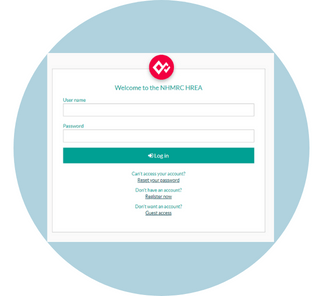For many years, Australia has been the one of the most attractive countries to perform clinical investigations for medical devices, pharmaceuticals and in-vitro diagnostics. The Clinical Notification Scheme (CTN) is a straight-forward and fast approval process from the Australian government regulatory organisation, Therapeutic Goods Administration (TGA). As part of the requirement of CTN, and before the clinical trial can officially begin, the essential documents including Clinical Investigation Protocol (CIP), Participant Informed Consent Form (PICF) and Investigator’s Brochure (IB) will be submitted, reviewed and approved by a Human Research Ethics Committee (HREC) responsible for participating sites.
Unlike the expeditious CTN process, the HREC approval process is Australia’s main rate limiting step and can effect the timely initiation of the clinical trial. Many committees and organisations have been formed over the past several years to streamline this process. Recently, the National Health and Medical Research Council (NHMRC) has taken another exciting step to ensure that Australia’s advantage of fast initiation of clinical trials are maintained and it remains as one of favoured destinations for many pharmaceutical and medical devices companies.
The National Ethics Application Form (NEAF) released in May 2006 by NHMRC, is a web-based application form designed to ensure that HREC application addresses all the ethical considerations that are relevant according to the National Statement of Ethical Conduct in Human Research and other applicable guidelines. However, this web-based application will become obsolete with the Human Research Ethics Application (HREA) replacing it (effective 31st March 2017). The NEAF account holders will no longer be able to submit their new proposal through the NEAF after this time but will be given until 30th June 2017 to copy or export their data stored in the system. After this time, the NEAF will be decommissioned and would not be able to be recovered.
HREA is a new web-based application platform developed by NHMRC as part of the initiative to streamline HREC approval process. The key difference of HREA in comparison to NEAF is that:
- Questions in HREA are fewer and more targeted, with a focus on eliciting information relevant to ethics review through the use of guidance text and narrative responses.
- HREA will use ‘Skip Logic’ so that only questions relevant to your research will be displayed.
- HREA will be hosted in an innovative online environment and will use contemporary features to make completion of the form easier and quicker.
- If HREC supports HREA platform, direct and electronic submission of completed application is possible.
- HREA has capacity to be used to facilitate the integration into existing IT systems used in institution to manage ethics application such as Low Risk and Negligible Risk Research (LNR).
- HREA allows inclusion of a Project Description/Protocol to support all HREA submissions and hence there is no need to duplicate information in the HREA into the Project Description of vice versa.
The NHMRC offers various training materials on their website for HREA and for more information and monthly updates, please visit http://www.neaf.gov.au, http://www.nhmrc.gov.au/research/clinical-trials/nhmrc-clinical-trials-initiatives/development-human-research-ethics-applica and http://hrea.gov.au.
Mobius Medical can assist you to navigate the entire regulatory process. Ask us more here.



